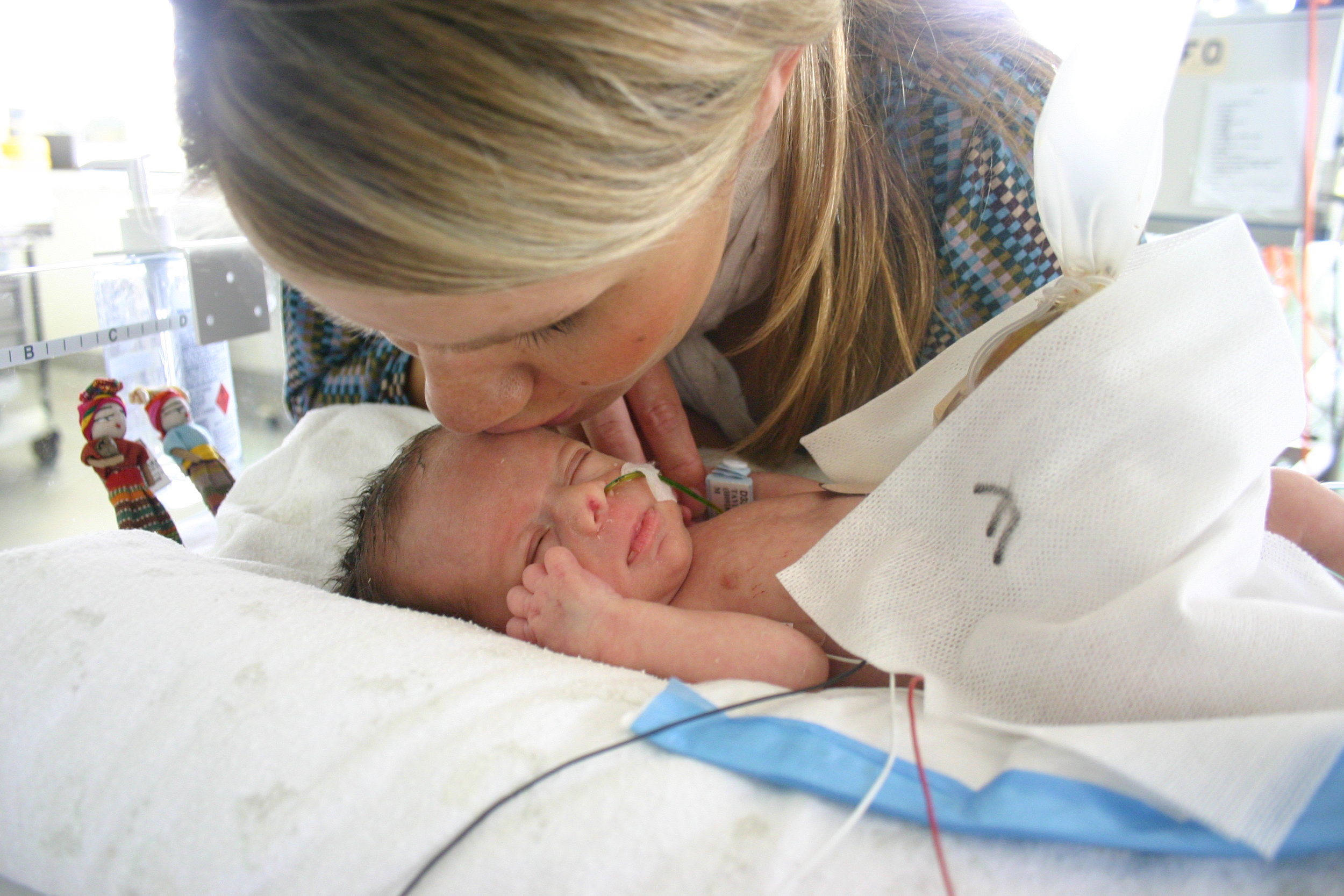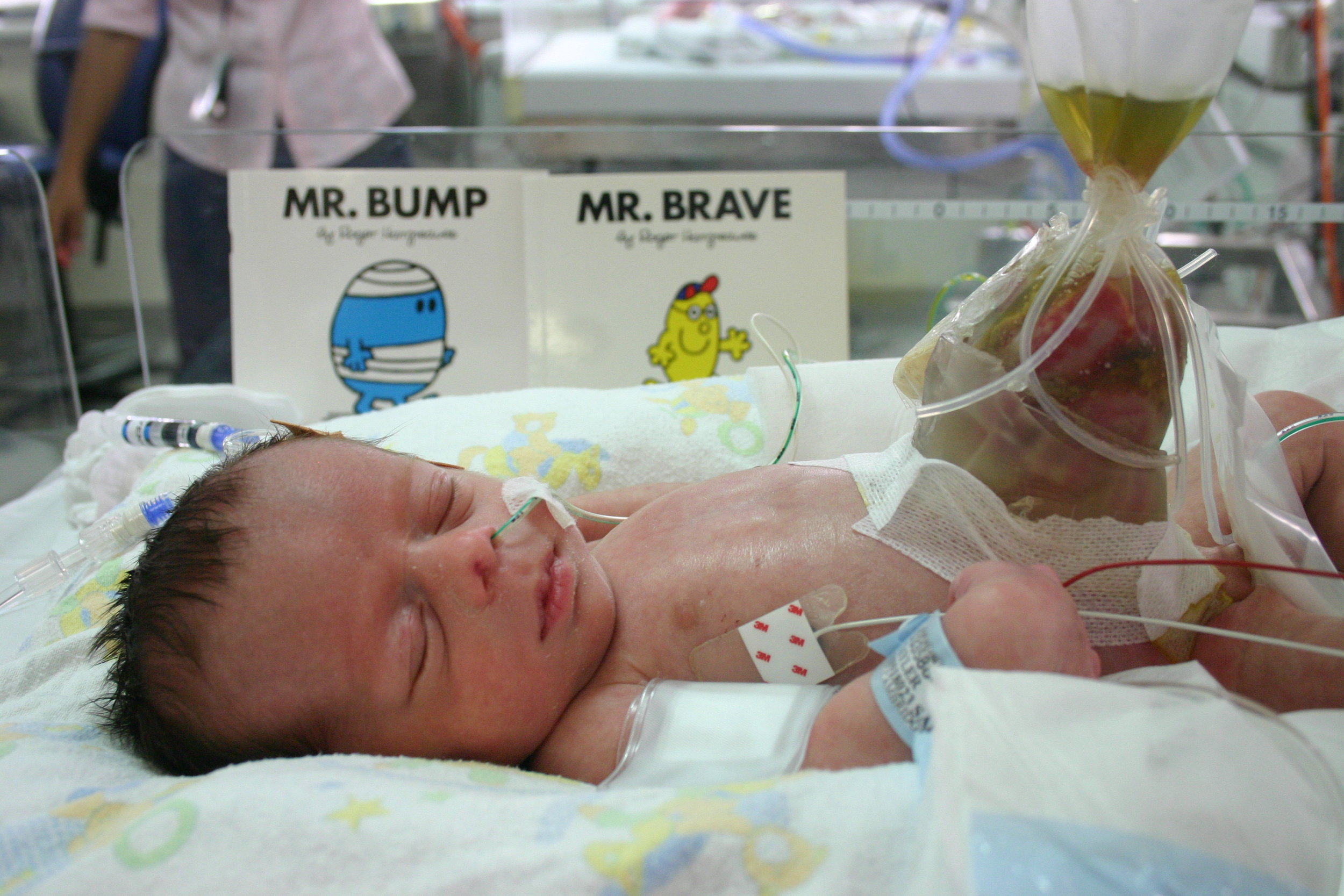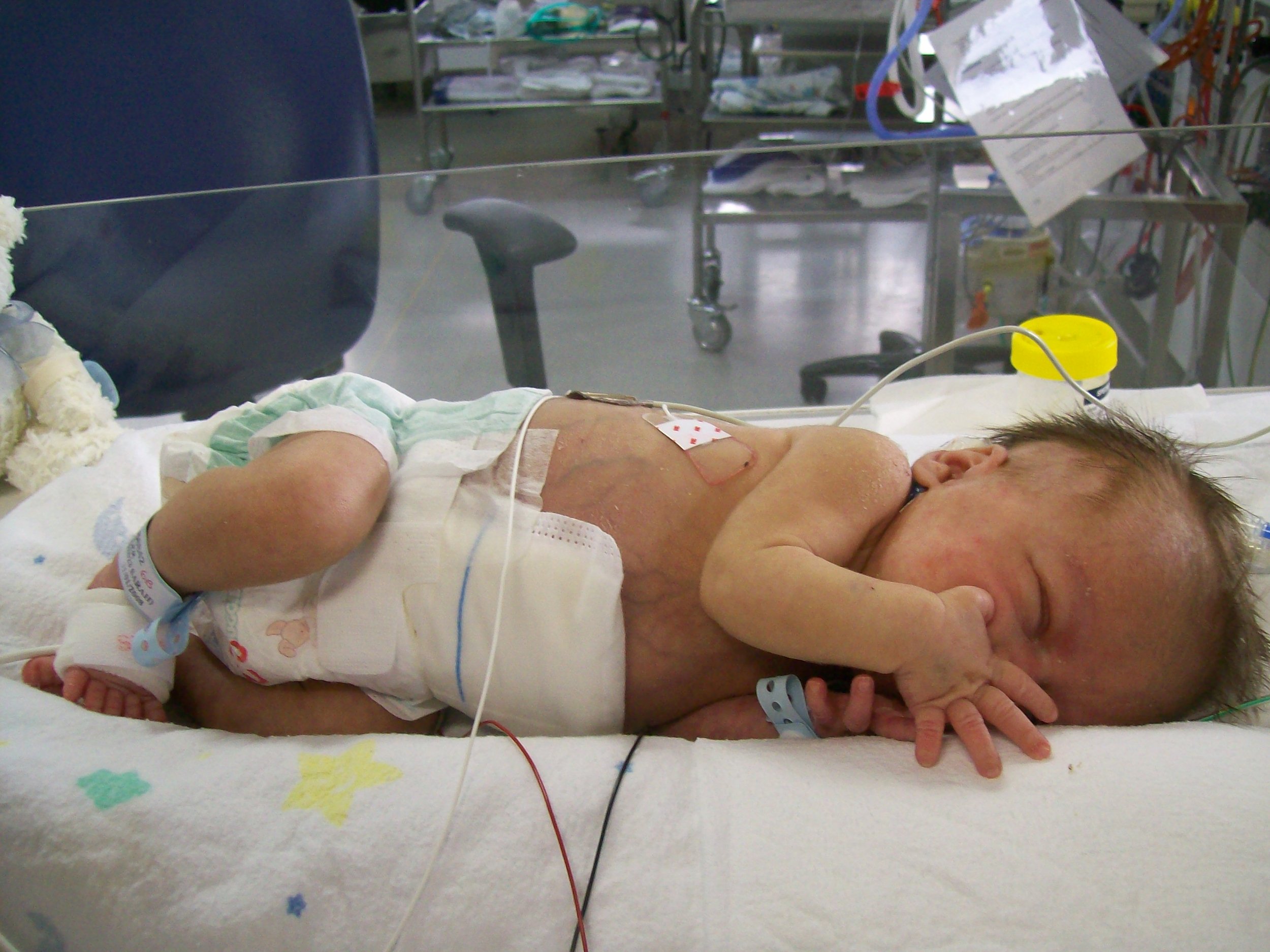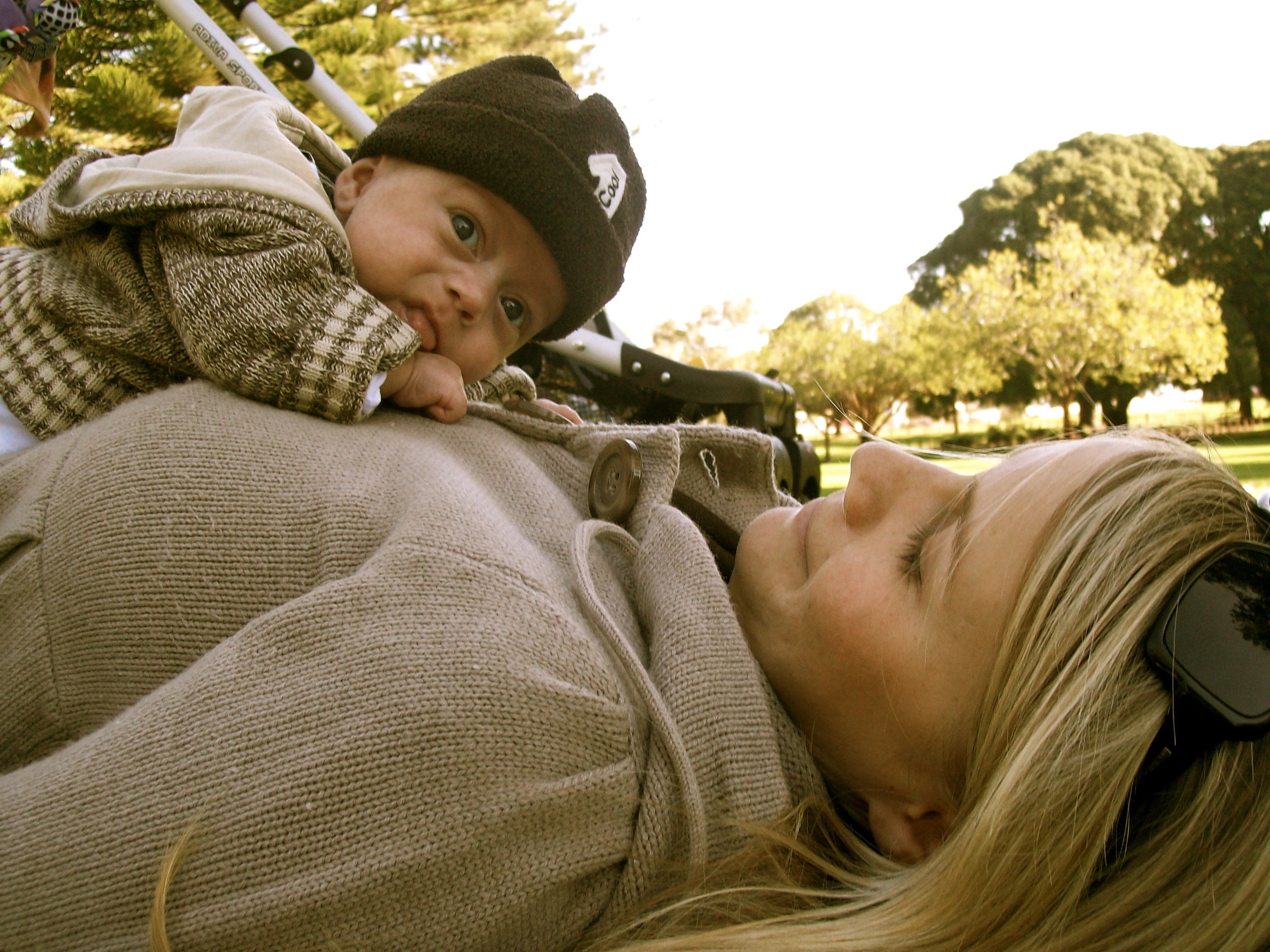Guest blog post by Sarah.
I was so thrilled to hear about the research recently announced by the Victor Chang Institute that vitamin B supplementation could prevent some miscarriages and birth defects.
After having my first baby with born with an abdominal wall birth defect, Gastroschisis, then suffering multiple miscarriages and having my next baby born with intrauterine growth restriction and placental insufficiency, I was relieved when my wonderful Obstetrician indicated that I could prevent my third baby suffering such things by taking vitamin B (and aspirin).
After spending many years myself working at paediatric and obstetric research institutes, although in a non-research role, I was always interested in why my pregnancies had been so troublesome and how I could've prevented them being so.
Almost ten years on, it seems fitting to share the birth story of my first born at the same time as such a momentous research announcement that could prevent many other women and babies following my same journey.
My journey with a high-risk pregnancy began at the 12-week mark of my pregnancy in 2007.
My story ends well. My high-risk baby is now a healthy, happy nine-year-old boy, an avid Dockers fan, footy mad and full of energy.
I do know, however, that other’s stories do not end like mine and that I am truly one of the lucky ones.
It was a winters day in Perth as I took myself off to my first trimester scan. Excited and nervous to see my baby, all seemed normal at my ultrasound. The Sonographer was clearly very good at keeping mum.
"Shall I post your scans to your Dr?" the Receptionist asked. "No, no - I'll take them myself" I said, hoping to have a sneaky look on my way.
Omphalocele - the letter said. What was that? This was in my pre-smart phone days, so I had to wait until I arrived at work to google it. Dr google. Worst invention ever.
"Omphalocele is an abdominal wall defect where organs protrude outside the body. Commonly associated with a high mortality and other defects".
Heart sinks.
And I'd already told everyone at work. Thankfully, I worked in a health organisation with a bunch of very understanding people.
I got straight into my Dr who referred me to King Edward Memorial Hospital (KEMH). It was a nervous week waiting for that appointment.
Immediately at ease in the care of the KEMH staff, the Sonographer confirmed that my baby had Gastroschisis. Still an abdominal wall birth defect, but with far better outcomes than Omphalocele. My baby could survive. Relief!
I was referred to the high-risk pregnancy management team at KEMH, who I could not speak more highly of, and, whilst they couldn’t guarantee me everything would be ok, they did provide me with reassurance that they would do everything they possibly could to help my baby survive.
I had many, many scans. I was told my baby had a higher risk of being born prematurely or stillborn. But – I prayed that he would enter the world alive, and for some reason, I had absolute faith that he would.
I visited the Neonatal Unit at Princess Margaret Hospital (PMH) where my baby would be transferred for surgery following his birth. He was to be in very safe hands.
Unexpectedly, I was informed that I could deliver my baby naturally, despite his exposed abdomen. And so, at 34 weeks pregnant, while sitting in my final antenatal class, I began to feel a bit strange. I headed home, put on a movie (not sure why I chose to watch Jersey Girl that night – but not a good choice if you are about to give birth!!), and waited until my contractions got closer together.
Arriving at the hospital at 1am, it was a smooth birth and my son was delivered to a room full of doctors at 9am weighing just under 2kg, on my Grandmother’s birthday.
My baby, and his internal organs which covered his tiny body, was wrapped in a protective bag and I had a little hold before he was whisked away to the Neonatal Intensive Care Unit.
There only for a short while, he was transferred that same day via the Newborn Emergency Transport Service to the PMH Neonatal Unit - 6B.
We spent 3 months in total in that unit. 3 months of tube feeding, of constant IV lines (I'll never forget the one in his head when they had run out of other veins), of 6 gruelling surgeries, and of not taking my tiny baby home with me.
I wasn't able to hold him for 2 months, and his only comfort was the touch of my hand and a dummy that was almost as big as his tiny face. He loved that dummy!
Initially, the Surgeon tried to insert his intestines back into his body, but as they didn't develop inside him, his tummy was not large enough to accommodate them. He developed compartment syndrome, and had to be opened up again. Slowly over about a month, his intestines were held in a plastic silo that fed them back into his tummy and stretched it at the same time. It was a very long month and I distinctly remember one of the Paediatrician's updates, "he's not out of the woods yet".
I visited my baby every day. I prayed that me being there and doing everything I could would somehow help him pull through. I also expressed milk every 3 hours for those 3 months so that I could one day feed him. The milk bank was FULL of my milk!
Despite the challenges, I felt extremely lucky that he was in the care of such competent and caring medical professionals and kept thinking how fortunate it was that he was born in a generation and country where he could be helped.
Finally, after about 2 months his intestines fit inside his body. He had quite a large 'crater' in his tummy, however, from a lack of skin covering his enlarged abdomen and this took some time to heal.
But, shortly after this, I was able to hold him in my arms!
Our next challenge was getting his intestines working. There were several kinks and blockages that had developed, and this followed with more surgeries to clear them up. Short gut syndrome was a real possibility, which would have meant a lifelong problem with feeding. But, thankfully, this didn't eventuate.
His gut started to work. He could take small tube feeds, which progressed to larger feeds, and then breast feeds - finally I was able to feed him!
And then - at last - I was able to walk him outside for the first time, 3 months after he was born. We went to the local park and I felt like the luckiest person alive.
Once we were home, he did struggle to gain weight and was readmitted to hospital once, but this was the only main hiccup following his discharge.
To this day, you would not know that my normal, happy, primary school boy had such a dramatic entrance to the world unless you looked at the scar on his abdomen, and noticed the lack of his belly button.
People say that it must've been really challenging to get through his time in hospital. It certainly wasn't ideal, but being my first baby I didn't have a comparison, and I just felt very fortunate that he was cared for so well, and that my strong boy was able to live.




